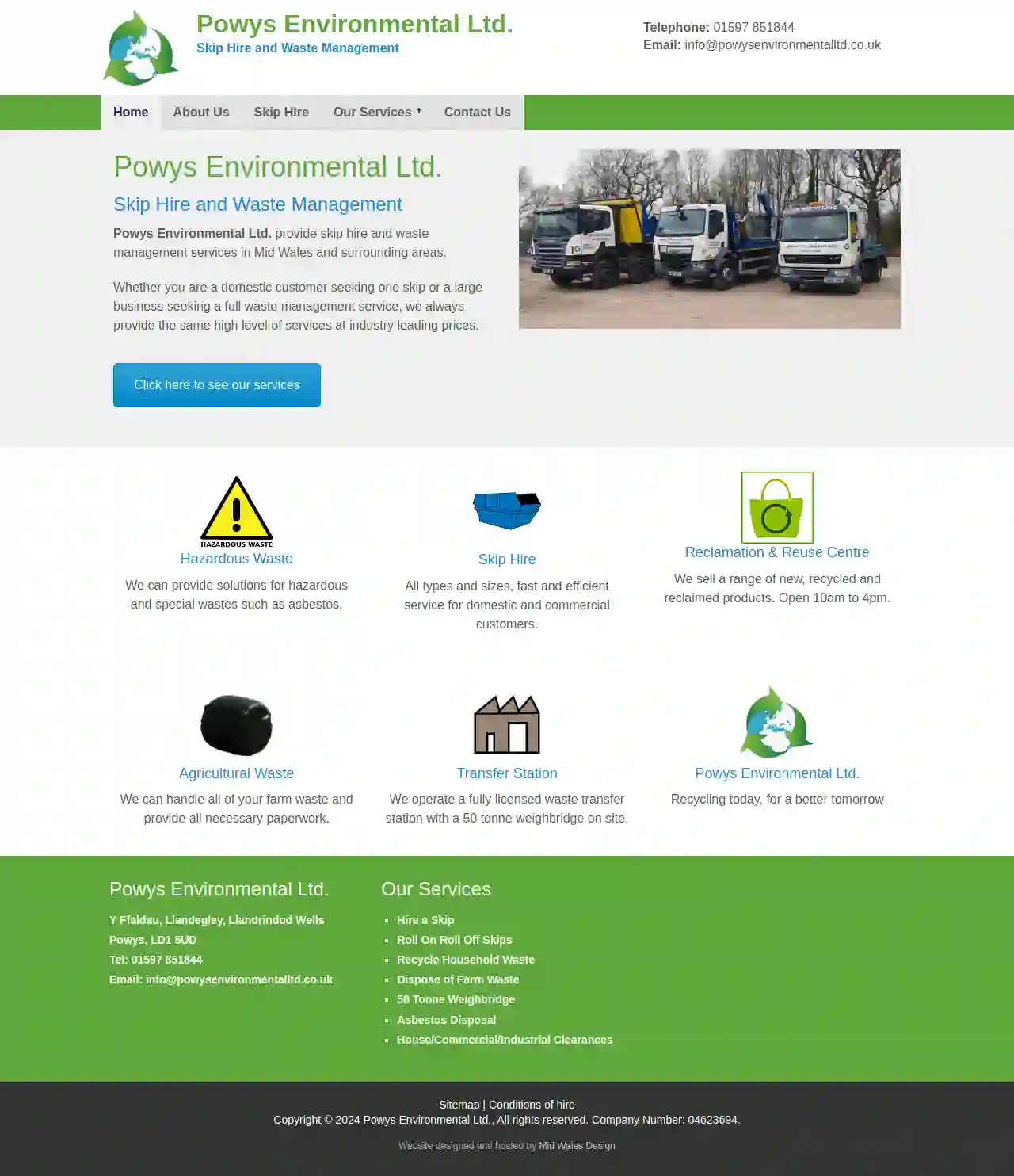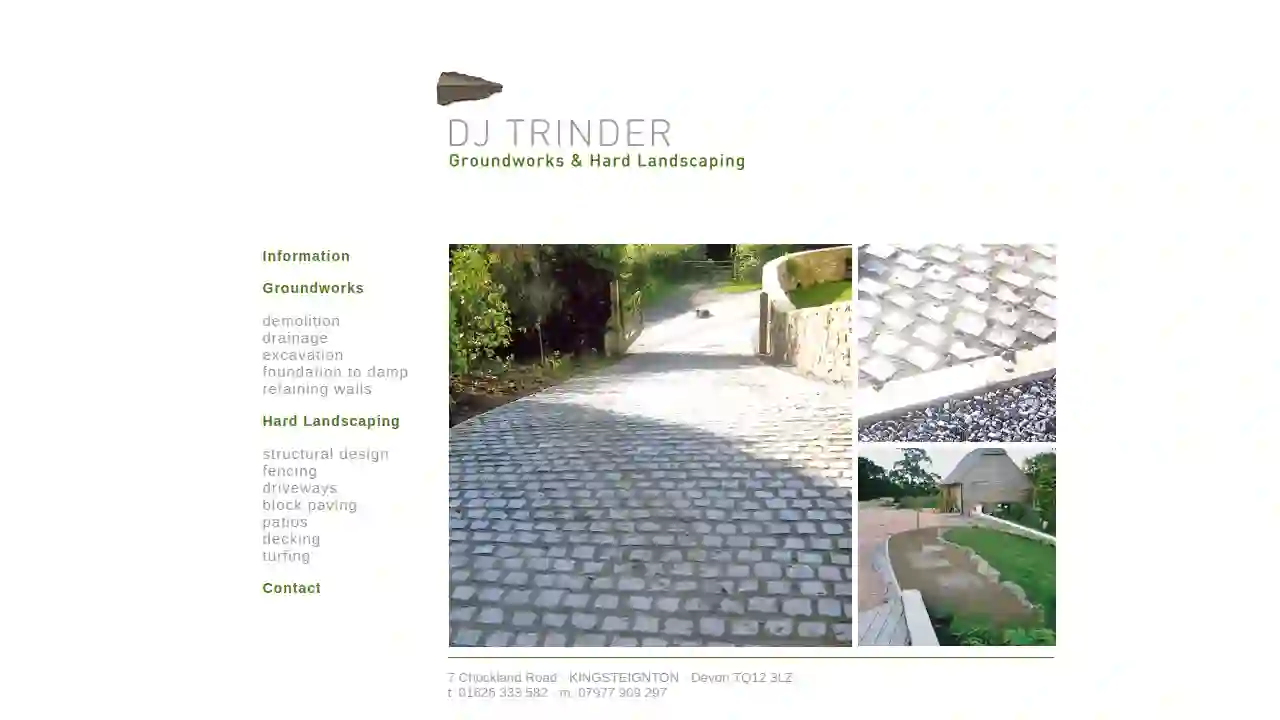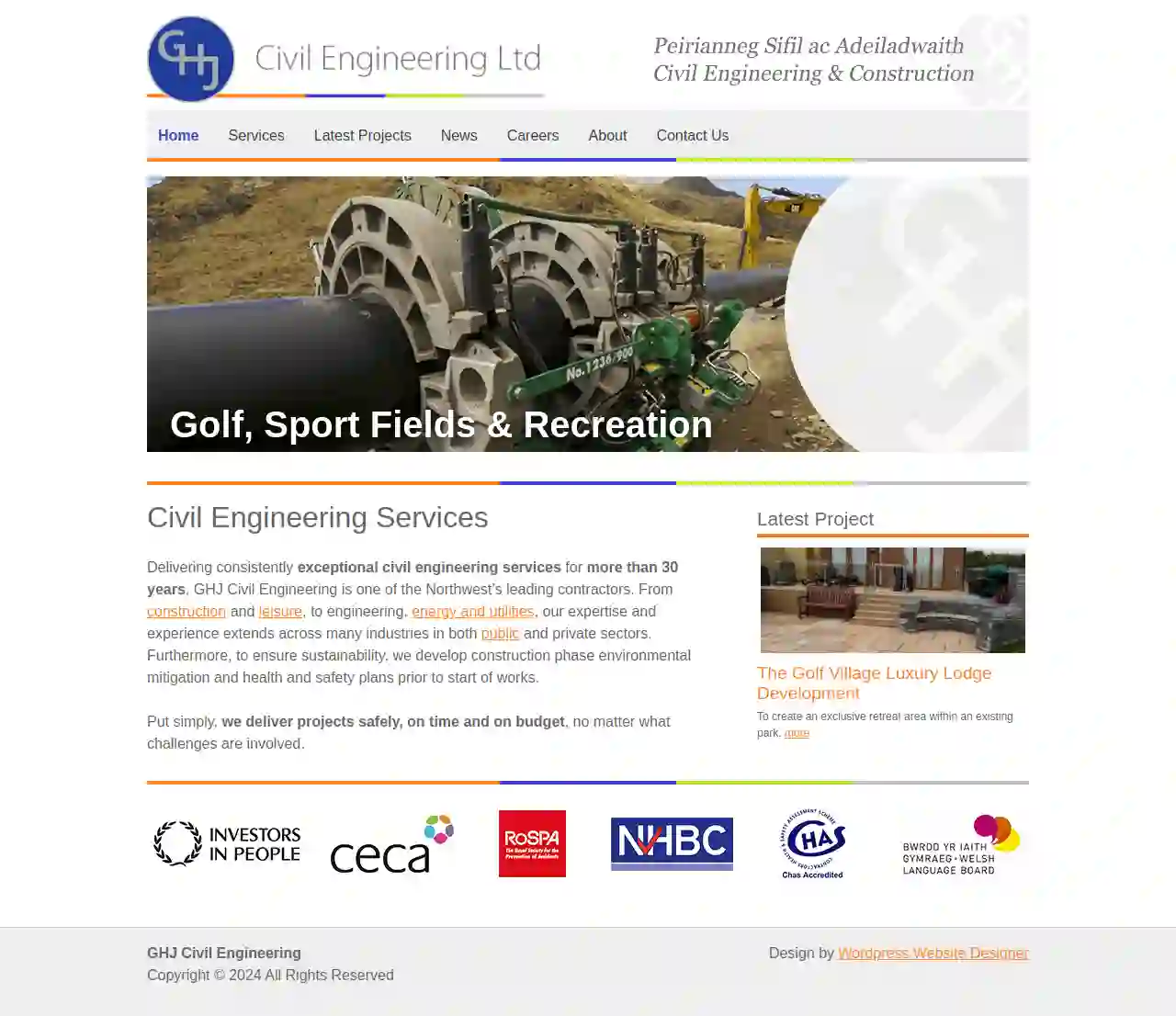Excavation Contractors Landore
Top Excavation Company Near Me in Landore
Get up to 3 Excavating Contractor quotes for your project today! Compare profiles, reviews, accreditations, portfolio, etc... and choose the best offer.

Roll Sec Landscaping & Driveways
4.950 reviewsWillenhall Lane, Walsall, West Midlands, WS2 7NN, GBWelcome to Roll Sec Landscapes & Driveways We are driveway and landscape specialists. We care about our reputation and pride ourselves on the quality of all the work we carry out. Roll Sec Landscapes & Driveways focus on achieving 100% customer satisfaction leaving you with a driveways and garden that you’ll be proud to showcase. We have built up an excellent client base with most of our work now coming through repeat customers and recommendation. Feel free to give me a call anytime for free friendly advice! We have years of experience in the landscaping industry, hence why we pride ourselves on our ability to get the job done right. No job is too big or small We are based in West Midlands and cover Walsall, Willenhall, Wolverhampton, hands worth, West Bromwich, Halesowen and Cannock.
- Services
- Why Us?
- Testimonials
- Gallery
Get Quote
SRG GROUNDWORKS LIMITED
57 reviews71 Birchfield Way, Walsall, WS5 4EE, GBAbout Us SRG Groundworks Ltd is a family-run business established in the West Midlands. We are a team of specialist groundworks and civils contractors undertaking projects nationwide. We possess a wide range of experience and expertise within the construction industry, enabling us to deliver projects safely, on schedule, and with competitive rates. We consistently provide our clients with a reliable and professional service. Working Together We understand that every project is unique, so we offer tailored solutions for each of our clients. We take pride in ensuring our clients receive complete satisfaction from the start to the finish of every project. Why Choose Us? Our team boasts a wide range of experience and qualifications that meet industry standards, guaranteeing excellent workmanship in every project. We maintain a high standard of health and safety. At SRG Groundworks Ltd, we comply with all aspects of current health and safety legislation and work effectively to implement it. We also regularly monitor our environmental impact, as reflected in our current accreditations.
- Services
- Why Us?
- Gallery
Get Quote
Rofft Developments 2000 Ltd.
Chard, GBAbout North Wales Building Network Your building project deserves the best … Highest standard project management and workmanship Carefully matched to existing building style and materials Compliant with building regulations and codes of practice. Members of the North Wales Building Network can undertake any construction project in North Wales, and nothing is too small or too complicated. Be it renovations, woodwork, bathroom and kitchen fitting, extensions and conversions, plumbing or joinery, our approved panel of building contractors are here to build your perfect home using the latest designs, highest quality materials and all of our expertise! Our experienced builders will complete each stage of your domestic or commercial project, from the conception of the plumbing and heating system to the decorations to complicated electrical wiring. If you are looking for local builders in North Wales, get in touch today. Our members are competitively priced with an excellent track record of customer satisfaction.
- Services
- Why Us?
- Gallery
Get Quote
Neath Port Talbot County Borough Council
3.221 reviewsNeath, GBWelcome to Neath Port Talbot Council Neath Port Talbot Council is committed to providing a wide range of services to its residents and businesses. We are dedicated to improving the lives of our communities and making Neath Port Talbot a great place to live, work and visit. Our website provides information on a wide range of topics, including: Bins and Recycling Jobs Schools and Learning Council Tax Planning and Public Protection Adult Social Care and Health Children and Family Services Parking, Roads and Travel Business Libraries Leisure, Parks and Culture Severe Weather Litter, Street Care, Pest Control Environmental Health Housing and Benefits Births, Marriages and Deaths We also provide a range of online services, including: Report, Request or Apply Make a Payment We are committed to providing a high-quality service to all our residents and businesses. We are always looking for ways to improve our services and make them more accessible. If you have any feedback, please do not hesitate to contact us.
- Services
- Why Us?
- Gallery
Get Quote
SSBC Contractors Ltd
56 reviewsSSBC Unit 10, Summers Yard, Caddsdown Industrial Estate, Bideford, North Devon, EX39 3GE, GBSSBC – Building & Carpentry Contractors SSBC Building and Carpentry Contractors is a renowned one stop company for all your building and construction needs. We provide all construction services in-house and undertake all types of construction services that include new builds, extensions, renovations and general property maintenance. Over the years, as we have evolved into a complete building services for domestic and commercial clients. We aim to provide affordable and professional services throughout Devon, Cornwall and Somerset. We are fully committed to providing our clients with services that exceed their expectations and ensure they receive the best possible added value. We take pride in every job we do and work hard to provide the very best quality and finishes.
- Services
- Why Us?
- Gallery
Get Quote
R S Groundworks Ltd
51 reviewsExeter, GBFew Words About Us Established in 2003, RS Groundworks were the first company in the UK to install secondary containment on a project in a live working storage depot after the Buncefield disaster. This is something which RS Groundworks has continued with on a large majority of the major fuel refineries, petrochem storage and distribution terminals, power stations and bulk liquid storage terminals within the UK, and are specialised in working within these highly controlled environments. Location RS Groundworks Ltd has its head office based in the South West of England but carry out substantial amounts of work throughout the UK and abroad, working from Cornwall to Scotland, from West Wales to the South East, as well as carrying out extensive works on both the Ascension Island and Falkland Islands Health and safety RS Groundworks Ltd are committed to high standards of Health and Safety and consider it paramount to ensure the safety and maintain the health of those working for RS Groundworks and also those affected by any of our activities, committing to incident and injury free working. All of RS Groundworks staff are CSCS or CCNSG (Client Contractors National Safety Group) Safety passports qualified (many are also NVQ qualified) with plant operatives being CPCS or NPOR's qualified. RS Groundworks Ltd are Alcumus - Safe Contractor and CHAS Accredited, who also hold Grade"A" approved Contractor status with ISNetworld
- Services
- Why Us?
- Gallery
Get Quote
Powys Environmental Ltd
Y Ffaldau, Llandegley, Llandrindod Wells, LD1 5UD, GBPowys Environmental Ltd. - Your Trusted Waste Management Partner in Mid Wales Powys Environmental Ltd. is a leading provider of skip hire and waste management services in Mid Wales and the surrounding areas. We are committed to providing our customers with the highest quality services at competitive prices. Whether you are a homeowner needing a single skip or a large business requiring a comprehensive waste management solution, we are here to help. Our team of experienced professionals is dedicated to providing you with the best possible service. We are fully licensed and insured, and we are committed to environmentally responsible waste management practices. We are proud to be a local business, and we are committed to supporting our community. We offer a wide range of services, including: Skip hire Total waste management solutions Commercial transfer station Muck away Agricultural waste Recycled aggregates Reclamation & Reuse Centre Clearances (domestic, commercial & industrial) Hazardous waste We are committed to providing our customers with the best possible service. We are fully licensed and insured, and we are committed to environmentally responsible waste management practices. We are proud to be a local business, and we are committed to supporting our community. Contact us today to discuss your waste management needs.
- Services
- Why Us?
- Gallery
Get Quote
D J Trinder Groundworks
7 Chockland Road, KINGSTEIGNTON, TQ12 3LZ, GBAbout DJ Trinder DJ Trinder is a family-run business with over 20 years of experience in the construction industry. We offer a wide range of services, from groundworks and demolition to landscaping and fencing. We are committed to providing our clients with high-quality workmanship and excellent customer service. Our Services We offer a wide range of services to meet your needs, including: Groundworks Demolition Drainage Excavation Foundation to damp Retaining walls Hard Landscaping Structural design Fencing Driveways Block paving Patios Decking Turfing Our Team Our team of experienced and qualified professionals is dedicated to providing you with the best possible service. We are committed to working closely with our clients to ensure that their projects are completed to the highest standards. Our Commitment We are committed to providing our clients with: High-quality workmanship Excellent customer service Competitive prices A professional and reliable service
- Services
- Why Us?
- Gallery
Get Quote
GHJ Civil Engineering Ltd
Chard, GBDelivering consistently exceptional civil engineering services for more than 30 years, GHJ Civil Engineering is one of the Northwest’s leading contractors. From construction and leisure, to engineering, energy and utilities, our expertise and experience extends across many industries in both public and private sectors. Furthermore, to ensure sustainability, we develop construction phase environmental mitigation and health and safety plans prior to start of works. Put simply, we deliver projects safely, on time and on budget, no matter what challenges are involved.
- Services
- Why Us?
- Gallery
Get Quote
GossFord Constructions Ltd
52 reviews13 Hunters Way, Culmstock, Cullompton, Devon, EX15 3HJ, GBWelcome to GossFord Constructions Ltd, a reputable building and construction company specialising in bespoke new builds, home transformations, and commercial projects. Our team is proud to be members of the Federation of Master Builders, ensuring high standards and quality workmanship. Located in Cullompton, we serve domestic and commercial clients throughout Devon by delivering reliable, cost-effective solutions for a wide range of construction and building needs. Whether you’re considering a home renovation, conversion, or require structural masonry and window installations, our dedicated team is here to assist you. Contact us today to discuss your project and receive a free, fully itemised, no-obligation quotation. We look forward to working with you on your next construction / building endeavor.
- Services
- Why Us?
- Accreditations
- Testimonials
- Gallery
Get Quote
Over 13,059+ Excavation Companies onboarded
Our excavation companies operate in Landore & surrounding areas!
ExcavationHQ has curated and vetted the Best Excavation Pros in and around Landore. Find a trustworthy contractor today.
Frequently Asked Questions About Excavation Contractors
- New Construction: Laying foundations, basements, or underground utilities for new buildings.
- Home Additions: Creating space for new rooms, basements, or extensions.
- Landscaping: Leveling ground, creating slopes, installing retaining walls, or digging for ponds or pools.
- Drainage Improvement: Installing French drains, drainage ditches, or swales to manage water runoff.
- Utility Installation or Repair: Laying new water, sewer, gas, or electrical lines, or repairing existing ones.
- Demolition: Clearing debris and preparing the site after demolishing a structure.
- Project Size and Scope: Larger, more complex excavations naturally take longer.
- Soil Conditions: Rocky or challenging soil types can slow down progress.
- Site Accessibility: Limited access might require more time for maneuvering equipment and hauling materials.
- Weather: Inclement weather can cause delays.
- Permitting and Inspections: Waiting for permits or inspections can extend the timeline.
- Sloped Property: Your property has a significant slope, making it prone to soil erosion or landslides.
- Creating Usable Space: You want to level off a sloped area to create a flat surface for patios, gardens, or other outdoor spaces.
- Preventing Damage: Erosion is threatening existing structures, driveways, or walkways.
- Landscaping Features: You're incorporating tiered gardens, raised beds, or other landscaping elements requiring soil retention.
- Topsoil Removal: Stripping the fertile topsoil layer from a site, often preserving it for landscaping.
- Trench Excavation: Digging long, narrow trenches for utilities (pipes, cables) or foundations.
- Basement Excavation: Removing earth to create a space for a basement beneath a structure.
- Pool Excavation: Digging a precise hole for installing a swimming pool.
- Roadway Excavation: Removing earth and preparing the ground for road construction.
- Demolition Excavation: Clearing debris and preparing the site after demolition.
- Channel Excavation: Creating channels for drainage or irrigation.
How do I know if I need excavation for my project?
How long does an excavation project take?
How do I know if I need a retaining wall?
What are the different types of excavation?
How do I know if I need excavation for my project?
- New Construction: Laying foundations, basements, or underground utilities for new buildings.
- Home Additions: Creating space for new rooms, basements, or extensions.
- Landscaping: Leveling ground, creating slopes, installing retaining walls, or digging for ponds or pools.
- Drainage Improvement: Installing French drains, drainage ditches, or swales to manage water runoff.
- Utility Installation or Repair: Laying new water, sewer, gas, or electrical lines, or repairing existing ones.
- Demolition: Clearing debris and preparing the site after demolishing a structure.
How long does an excavation project take?
- Project Size and Scope: Larger, more complex excavations naturally take longer.
- Soil Conditions: Rocky or challenging soil types can slow down progress.
- Site Accessibility: Limited access might require more time for maneuvering equipment and hauling materials.
- Weather: Inclement weather can cause delays.
- Permitting and Inspections: Waiting for permits or inspections can extend the timeline.
How do I know if I need a retaining wall?
- Sloped Property: Your property has a significant slope, making it prone to soil erosion or landslides.
- Creating Usable Space: You want to level off a sloped area to create a flat surface for patios, gardens, or other outdoor spaces.
- Preventing Damage: Erosion is threatening existing structures, driveways, or walkways.
- Landscaping Features: You're incorporating tiered gardens, raised beds, or other landscaping elements requiring soil retention.
What are the different types of excavation?
- Topsoil Removal: Stripping the fertile topsoil layer from a site, often preserving it for landscaping.
- Trench Excavation: Digging long, narrow trenches for utilities (pipes, cables) or foundations.
- Basement Excavation: Removing earth to create a space for a basement beneath a structure.
- Pool Excavation: Digging a precise hole for installing a swimming pool.
- Roadway Excavation: Removing earth and preparing the ground for road construction.
- Demolition Excavation: Clearing debris and preparing the site after demolition.
- Channel Excavation: Creating channels for drainage or irrigation.